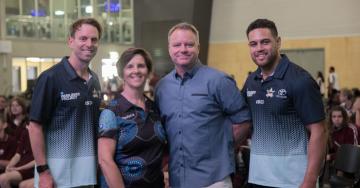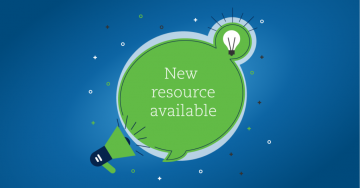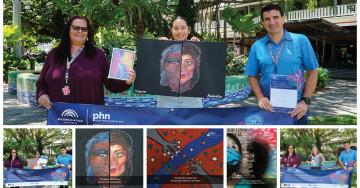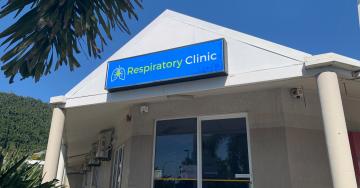How can we help you today?
Below is a collection of Information and resources for older Australians, First Nations People, people with a disability, people who are deaf or hearing-impaired, Culturally and Linguistically Diverse (CALD) populations, people who are experiencing homelessness or are at risk of homelessness, LGBTIQ and HIV communities, and more.
Older Australians
- COVID-19 vaccine information for RACF aged care providers and workers
- The Australian Government has provided advice for people aged 70 years and over and people aged 65 years and over with chronic medical conditions.
- In response to the coronavirus (COVID-19) pandemic, Queensland Health has developed advice for older Queenslanders aged 65 years and over and First Nations people aged over 50 years.
- My Aged Care has Coronavirus (COVID-19) information and support for older Australians.
- COTA Australia has been actively working to make sure the needs of older people are being prioritised. A variety of fact sheets and resources are available.
- The Community Visitors Scheme arranges volunteer visits to older people to provide friendship and companionship. Visits are available to anyone receiving government-subsidised residential aged care or Home Care Packages.
- View the information sheet for families and residents on restricted visits to residential aged care facilities on how to prevent the spread of coronavirus (COVID-19).
First Nation Peoples (Aboriginal and Torres Strait Islander community)
- Coronavirus (COVID-19) advice from the Australian Government for Aboriginal and Torres Strait Islander peoples and remote communities.
- Queensland Government advice and information for First Nations people.
- NQPHN launched a new health campaign during National Reconciliation Week 2020, focusing on improving health outcomes for First Nations people during the COVID-19 pandemic. The ‘Our Mob to Your Mob’ campaign consists of three posters featuring nine of NQPHN’s Aboriginal and Torres Strait Islander staff, as well as a short video featuring the NQPHN staff promoting important health messages.
- An extensive list of resources catering for Aboriginal and Torres Strait Islander audiences is available on the Australian Indigenous HealthInfoNet.
- Department of Aboriginal Torres Strait Islander Partnerships (DATSIP) has advice around Sorry Business and funerals relating to COVID-19.
- National Aboriginal Community Controlled Health Organisation (NACCHO) has extensive advice and resources on COVID-19.
- Queensland Aboriginal and Islander Health Council (QAIHC) has developed culturally appropriate resources.
- The Institute for Urban Indigenous Health (IUIH) Deadly Choices team has produced a series of excellent COVID-19 posters and videos for use with Aboriginal and Torres Strait Islander peoples. The resources include advice on social distancing, symptoms, and washing hands.
- 1800 173 349 – Community recovery hotline for Aboriginal and Torres Strait Islander older people who are required to be in quarantine or self-isolation and who have no other means of support to secure essential items.
- Sign up for the Department of Health’s‘ KEEP OUR MOB SAFE STOP THE SPREAD’ COVID-19 newsletter for Aboriginal and Torres Strait Islander households, communities, and stakeholders.
- The Aboriginal and Torres Strait Islander 13 HEALTH (13 43 25 84) Nursing Service provides health advice to all Aboriginal and Torres Strait Islander peoples living in Queensland during COVID-19.
People with a disability
- Queenslanders with Disability Network offers resources to help you get the facts, make a plan, and stay connected.
- Queensland Health has developed a web resource for people with disability, their friends, families, carers, and support workers.
- The Australian Government has launched a Disability Information Helpline for people with disability, their families, carers, support workers, and services who need help because of coronavirus (COVID-19). If you have a COVID-19 related question and do not know where to start, you can contact the Helpline from Monday to Friday 8am to 8pm (AEST) and Saturday and Sunday 9am to 7pm (AEST) in the following ways:
- Phone (free call): 1800 643 787
- If you are deaf, or have a hearing or speech impairment, you can also call the National Relay Service on 133 677.
Health resources in Easy Read/Auslan
The Australian Government has released a range of health information about COVID-19 on the Disability Information Helpline page on the Department of Social Services website in Easy Read and Auslan websites including:
- Coronavirus – What is it? – Easy Read
- Coronavirus – 5 things to do right now – Easy Read
- Coronavirus – What you need to know – Easy Read
- Coronavirus – FAQs – Easy Read
- Coronavirus – Social distancing – Easy Read
- Coronavirus – Staying at home – Easy Read
- Information and support for people with disability and carers – Auslan.
Information for people who are deaf or hearing-impaired
Expression Australia is providing regular Auslan-only video updates accompanied by a English text summary – view them here. These will also be posted on their social media channels: Facebook, Instagram, and Twitter.
Culturally and Linguistically Diverse (CALD) populations
- Translated resources, information on services and where to find support can be found at Refugee Health Network Queensland website.
- Translated coronavirus resources are available on the Department of Health website.
- News and information about coronavirus is available below in 63 languages on the SBS website.
- Study Queensland has collated a range of options to support the wellbeing of international students.
People who are experiencing homelessness or are at risk of homelessness
- oneplace – Find help near you. Search more than 53,000 Queensland family community services at oneplace. oneplace lists everything you need, from emergency relief to domestic and family violence support services.
- Homeless hotline – statewide phone information and referral service for people who are experiencing homelessness or are at risk of homelessness. Call 1800 474 753.
- Ask Izzy is a mobile website connecting people who are in crisis with the services they need right now and nearby, including housing and homeless support. They also have a specific COVID-19 support area.
- The Deck is a resource hub for the housing and homelessness sector. You can find COVID-19 related housing and homelessness information through their updates page.
- Find information and support on the COVID-19 changes affecting renting in Queensland on the online residential rental hub.
LGBTIQ and HIV communities
- Anonymous and free LGBTI peer support via webchat and telephone services through QLife.
- Australian Federation of AIDS Organisations offers extensive information and advice for the LGBTIQ and HIV communities.
Eating Disorder community
Find COVID-19 and eating disorders information from the National Eating Disorders Collaboration.
Parents, carers, children, and youth
- Queensland Health has developed COVID-19 specific web information for parents and children.
- Queensland Health has also produced a COVID-19 web resource specifically for pregnant and breastfeeding women.
- Advice about COVID-19 and what it means for your child’s health on the Children’s Health Queensland Hospital and Health Service website.
- Supporting children during the COVID-19 pandemic via Emerging Minds.
- The Queensland Centre for Perinatal and Infant Mental Health have added a new book called ‘Birdie and the Virus‘ to their collection of online children’s resources. ‘Birdie and the Virus’ has been specifically designed to support the mental health and emotional wellbeing of babies and young children, their parents, and families, during the COVID-19 pandemic.
Information and resources to help support infants and young children impacted by natural disasters via Birdie’s Tree.
07 February 2022
YOUR FEEDBACK







